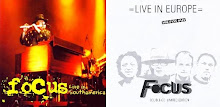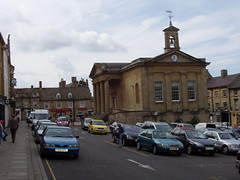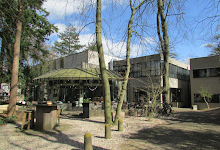Archive number: 3
Title: Sugar Island
Main Album: In and Out of Focus
Track number: 3 (not on the Sire release - too politically sensitive)
Genre: Jazz Pop Vocal (protest song)
Studio: Sound Techniques Studio, 46a Old Church Street, Chelsea, London SW3
Length: 3' 05"
Composer: Thijs van Leer, Martijn Dresden (music) Jan Staal (words)
Musicians: Jan Akkerman - Electric guitar (Fender telecaster), acoustic guitar, backing vocals; Thijs van Leer - Vocals, Backing vocals, Flute, Hammond organ; Martijn Dresden – Bass; Hans Cleuver - Drums
Producer: Hubert Terheggen (RTM)
Engineer: Jerry Boys
Label: LP - Imperial, Sire, Polydor; CD - EMI Bovema, IRS, Red Bullet
Date of recording/release: Late January 1970/Autumn 1970 (1973 in the US. In 1974 the album appeared in Brazil as Pop Giants). CD – 1988, 1993, 2001.
Notes: For this egregiously political song the band turn west for musical inspiration and appropriately to the Caribbean. The number has quite a jazz feel, including some scat from van Leer (the first example). The band (bass, electric guitar, drums) begin together and are soon supplemented by acoustic rhythm guitars that go on throughout, before going straight into the lyric, sung by van Leer. His voice is multi-tracked, with backing vocals (as indicated in part below) probably from Akkerman as well as van Leer. The vocal is interspersed with an instrumental break, led first by Akkerman's pizzicato jazzy electric guitar (01:15-01:39) then a mildly rasping jazz-style flute (01:40-02:05). After more vocal work the band play out, led by flute and guitar from 02:47. The whole is brought to a conclusion by a final definite but repeated ensemble chord.
The lyrics (by Dutch writer and actor Jan Staal 1920-1992) are:
Sugar island Cuba (Aaah)
You lay there just for fun (Aaah)
With all your colours and your palms,
A treasure in the sun (2 x)
Dabadabadabada Dabadabadabada
Castro makes the poor man rich (Aaah)
And rings the rich man's knell. (Aaah)
He makes the island grey and pale
I wish he were in hell. (2 x)
Dabadabadabada Dabadabadabada
(Break)
Dabadabadabada Dabadabadabada
Sugar island Cuba (Aaah)
You are no more for sale (Aaah)
This Castro makes the poor man rich
He makes the flowers pale. (2 x)
Dabadabadabada Dabadabadabada.
A note on Castro (based on Wikipedia)
Fidel Alejandro Castro Ruz (1926-2016) was a Cuban revolutionary leader who led his country from January 1959 until the announcement of his retirement in February 2008. He took power in an armed revolution that overthrew the dictatorship of Fulgencio Batista and was shortly thereafter sworn in as Prime Minister. In 1965 he became First Secretary of the Communist Party of Cuba and led its transformation into a one-party socialist republic. In 1976 he became President of the Council of State and of Ministers. In 2006 he passed on duties to his son Raul and in 2008 announced he would neither seek nor accept a new term as President or Commander-in-chief.
Castro first attracted attention in Cuban political life through nationalist critiques of Batista and the US political and corporate influence in Cuba. He gained an ardent, but limited, following and also drew the attention of the authorities. He eventually led the failed 1953 attack on Moncada Barracks, after which he was captured, tried, incarcerated and later released. He then travelled to Mexico to organise and train for the guerrilla invasion of Cuba that took place in December 1956. Since his assumption of power in 1959 Castro has evoked both praise and condemnation (at home and internationally). Opponents characterise him as a dictator, claiming that he has not risen to power through open, public elections, while some contend that his rule is illegitimate because the socialist system itself was not established through what they considered to be legal means. Supporters, on the other hand, see him as a charismatic leader whose presidential authority has been acquired through legitimate elections. Outside Cuba, he has been defined by his relationship with the USA and the former Soviet Union, both of whom courted Cuban attentions as part of their own global political agenda. While Cuba's relations with countries of the Soviet bloc were generally cordial during the Cold War, the Castro-led government has had an antagonistic relationship with the USA since the failed Bay of Pigs invasion of Cuba (1961) by US-backed forces. Following the collapse of the USSR and Cuba's one major Latin American ally, Sandinista Nicaragua, in the early 1990s, the Cuban government found itself in a precarious spot. However, in recent years, Castro has found new regional allies in Latin America. At home, Castro has overseen the implementation of various economic policies, leading to the rapid centralisation of Cuba's economy, land reform, collectivisation, etc. Opponents claim that these changes have at best maintained Cuba's pre-'59 level of development, but at an "extraordinary" cost to the overall welfare of Cubans. Conversely, supporters blame the US embargo for some or all of Cuba's shortcomings but maintain that Cuba's economy has expanded and grown at a more than acceptable rate since the revolution. The expansion of publicly funded health care and education has been a cornerstone of Castro's domestic political program. Cuba ranks better than many countries with regard to infant mortality, which is claimed by Castro supporters as a success of his government. Opponents claim that Cuba's health care and infant mortality were the same if not better before the revolution and question the truthfulness of official statistics.























No comments:
Post a Comment